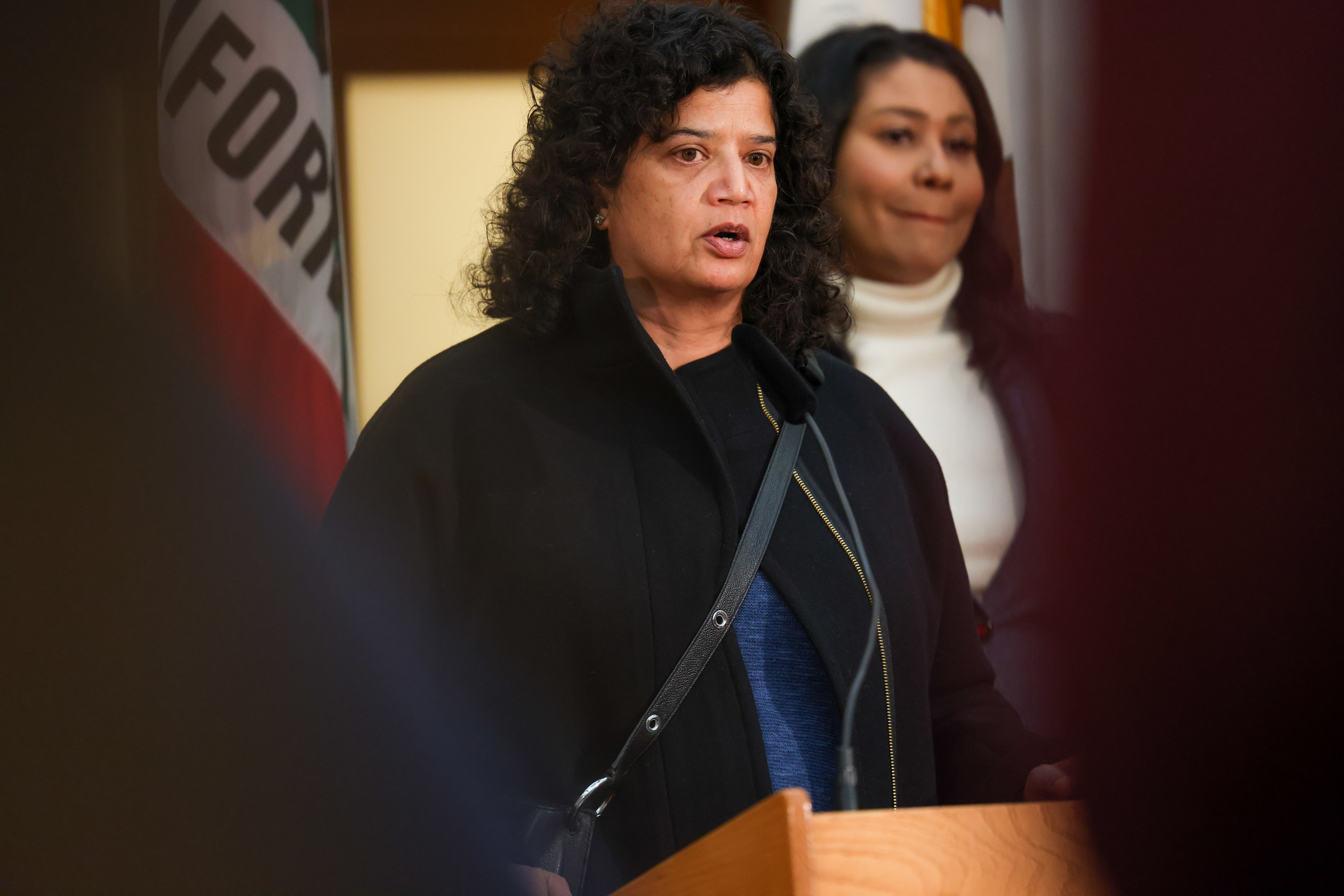The department tasked with solving the homeless crisis in San Francisco has deemed its own plan to do so unfeasible.
During a Board of Supervisors hearing on Tuesday, lawmakers discussed a plan by the Department of Homelessness and Supportive Housing to end unsheltered homelessness citywide by 2026—a noble goal, but one that department head Shireen McSpadden has come to believe is unworkable. Citing staffing shortages and the difficulty of finding usable properties, the report concludes that the parameters under which it is expected to alleviate the crisis are simply unfeasible.
“We were just trying to be realistic about some of the challenges,” McSpadden said.
The department’s 23-page report struck some supervisors as defeatist in tone.
“Why would you put these numbers down and then say we can’t do it?” said Supervisor Dean Preston. “It makes no sense whatsoever.”
It is a complicated topic, to be sure, as well as an expensive one. The homelessness department report estimated that the cost of solving the homelessness crisis in the next three years would total $992 million. That nearly $1 billion figure, which is a $400 million decrease from the department’s initial estimate in December, doesn’t account for already-budgeted items or an annual $378 million in subsequent costs.
Further, other considerations may make the goal impossible to achieve. For example, in the Mission District, a plan to build 70 to 80 tiny homes at a price of $7.4 million was shot down after neighbors came out against the project. Supervisor Hillary Ronen, who had championed the project, said that the foiled plan left her depressed.
Ronen said during Tuesday’s hearing that, even with the necessary funding and political will, efforts to house and shelter every homeless person would meet too much pushback to succeed.
“I’ve been here trying to work on this issue for 13 years, and I’m just out of ideas,” Ronen said. “If we can’t find a way to show our communities that these sites improve conditions in a neighborhood and don’t make them worse, I just don’t know how we ever find more sites.”
At least 4,379 people sleep on San Francisco’s streets on any given night, while as many as 20,000 people experience homelessness citywide during the course of a year, according to the most recent count. The issue has continually topped the list of concerns for residents while taxing vital infrastructure such as public transportation and law enforcement.
Supervisor Rafael Mandelman, who called for the hearing, took issue with what he deemed as the department’s fixation on permanent housing over shelter
Mandelman argued that the city is not responsible for permanently housing everyone who arrives in San Francisco, and asked the homelessness department to shift its focus to more temporary options.
“I simply don’t believe this department is serious about ending unsheltered homelessness in San Francisco,” Mandelman said. “It seems that you’re almost unwilling to contemplate a more transitional housing-based approach.”
Representatives from the department contended that an excessive focus on shelter would require the perpetual addition of new beds. Therefore, it could be more expensive in the long run. The department plans to release another five-year plan to address homelessness next month.
While Preston contended that the the city does have a responsibility to permanently house all of its unhoused residents, he took issue with the department’s assertion that the plan is unfeasible.
Preston pointed to the city’s recent promise to stand up 47,000 affordable housing units by 2031 as well as a $25 million budget supplemental for the San Francisco Police Department that was passed earlier in the meeting.
“Tell us what you need,” Preston said. “Let’s not start from a place of assuming that you can’t do it.”
McSpadden said that the department’s reluctance stems from staffing shortages that hinder its ability to quickly execute and monitor contracts. The department is currently under contract with many nonprofits that are out of compliance with state law.
“We’re seeing some organizations that are really struggling to keep up now before we’re even trying to do this,” McSpadden said. “We were just trying to be realistic about some of the challenges with staffing, both on the nonprofit side and within our department.”
